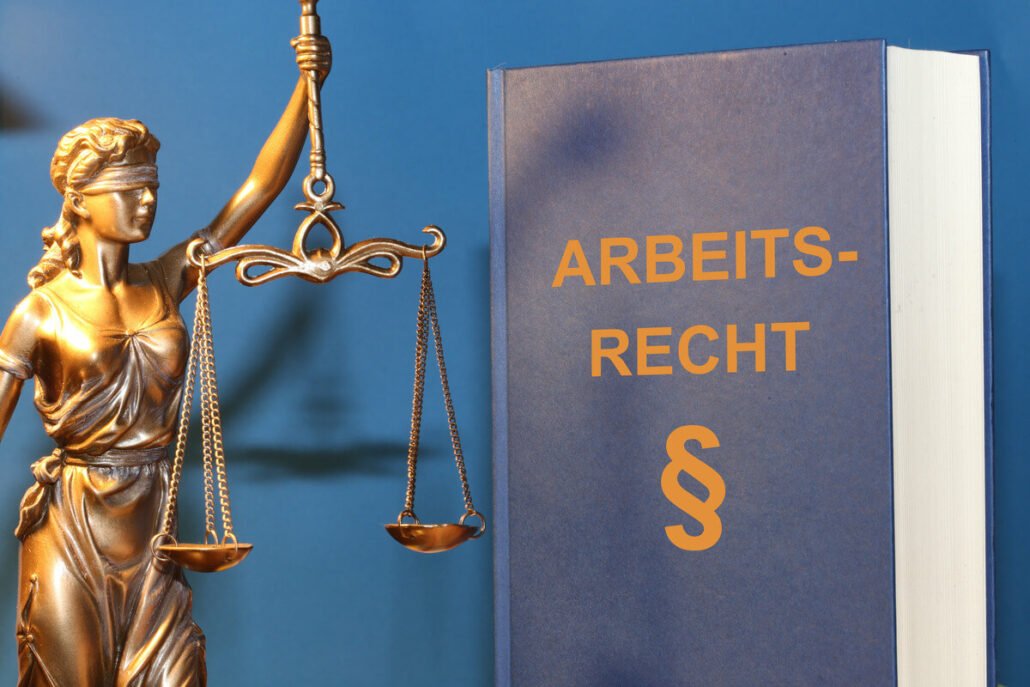
When an employer – or employee – terminates an employment contract, the contract does not end immediately—a notice period must be observed. This period is usually defined in your employment contract. Only if not, the statutory notice period applies, which can be up to six months or longer depending on the length of employment. During this time, the employer must continue to pay wages or salary, so significant sums can be involved. Employees should understand their rights to avoid costly mistakes—especially when considering a termination agreement. Regardless whether you’re planning to resign or were recently let go, understanding the statutory notice periods in Germany is essential to avoid legal and financial consequences. This guide explains how notice periods are calculated, when they apply, and what expats and employees should watch out for in practice.
Calculate your severance payment
Calculate the settlement amount for your individual case in 2 minutes
Content
- 1. What Are Statutory Notice Periods?
- 2. Standard Statutory Notice Periods
- 3. Employer-Side Notice Periods (Seniority-Based)
- 4. What About During Probation Period?
- 5. Can Contractual Notice Periods Be Different?
- 6. What Happens if the Notice Period Is Not Respected?
- 7. Do You Have to Work During the Notice Period?
- 8. Common Problems for Employees and Expats
- 9. When Can You Resign Without Notice?
- Conclusion
1. What Are Statutory Notice Periods?
Statutory notice periods refer to the minimum legally required time between announcing a termination and the official end of the employment relationship. They are defined in Section 622 of the German Civil Code (Bürgerliches Gesetzbuch – BGB).
These rules apply:
- To both employers and employees
- Unless a longer period is agreed in the employment contract or collective agreement
- Regardless of your nationality or visa status
📌 Shorter notice periods may only apply during the probation period or in temporary contracts under specific conditions.
2. Standard Statutory Notice Periods
For employees, the basic statutory notice period when resigning is:
▶ 4 weeks to the 15th or the end of a calendar month
This means:
- You can resign with 4 weeks’ notice ending either on the 15th or the last day of the month
- No justification or reason is required for a standard resignation
📌 Example: If you resign on March 3, your last working day would be April 15.
If you resign on March 20, your last working day would be April 30.
Free initial consultation with a lawyer
Quick callback after 1 to 2 hours for a free initial consultation with a lawyer
3. Employer-Side Notice Periods (Seniority-Based)
If the employer terminates the contract, the notice period depends on how long the employee has worked at the company.
| Length of Employment | Employer’s Notice Period |
|---|---|
| Less than 2 years | 4 weeks to 15th or end of month |
| 2 years | 1 month to end of month |
| 5 years | 2 months to end of month |
| 8 years | 3 months to end of month |
| 10 years | 4 months to end of month |
| 12 years | 5 months to end of month |
| 15 years | 6 months to end of month |
| 20+ years | 7 months to end of month |
📝 These extended notice periods only apply to employers, not employees.
4. What About During Probation Period?
During the first 6 months of employment (probation period), both parties may terminate the contract with 2 weeks’ notice—unless the contract says otherwise.
Key points:
- No justification needed during probation
- Termination can occur at any time, not tied to the end of a month
- You are still entitled to a written termination notice
📌 Important for expats: Even during probation, termination must be in writing and may impact your residence permit if it’s linked to employment.
5. Can Contractual Notice Periods Be Different?
Yes. Your employment contract may:
- Extend the statutory notice periods (common in executive or senior roles)
- Align employer and employee notice periods for fairness
- Refer to collective agreements (Tarifverträge) in unionized sectors
🚫 However, it is not permitted to shorten statutory notice periods below the legal minimum—except for specific short-term or marginal jobs.

Calculate severance pay now free of charge
- Calculate potential severance payment amount
- Strategy for negotiating a fair severance payment
- Find suitable lawyers for labour law
6. What Happens if the Notice Period Is Not Respected?
If either party terminates without respecting the proper notice period, consequences can include:
❌ For employers:
- Wrongful dismissal lawsuits
- Reinstatement claims
- Back pay obligations
❌ For employees:
- Claims for damages (if the employer incurs costs)
- Forfeiting part of final salary or bonuses
- Risk of Sperrzeit (waiting period) for unemployment benefits
📌 Always check the termination date and method carefully before giving or receiving notice.
7. Do You Have to Work During the Notice Period?
In most cases, yes. You must continue working as normal during your notice period unless:
- You are released from duties (Freistellung)
- You use remaining vacation days
- A mutual agreement states otherwise
Employers often release employees after giving notice, but must still pay full salary during the notice period.
Calculate your severance payment
Calculate the settlement amount for your individual case in 2 minutes
8. Common Problems for Employees and Expats
⚠️ Short notice offers
Sometimes employers suggest “ending the contract next week” without formal notice. This is legally invalid unless mutually agreed—and may affect your visa or unemployment rights.
⚠️ Oral terminations
Only written notice is legally valid in Germany. Email, WhatsApp, or verbal dismissals have no legal effect.
⚠️ Unclear contract clauses
Some contracts are vague or inconsistent with German law. If in doubt, seek legal advice before accepting terms or signing anything.
⚠️ Residence permits
If your employment ends, notify the immigration office (Ausländerbehörde) promptly. You may have a grace period to find new work, especially under the Blue Card program.
9. When Can You Resign Without Notice?
Employees may terminate without notice (außerordentliche Kündigung) only for serious cause, such as:
- Persistent non-payment of salary
- Harassment or unsafe working conditions
- Criminal behavior by the employer
📌 In these cases, consult a lawyer before acting—proof and documentation are essential.
Conclusion
Understanding your statutory notice period is critical to protecting your legal rights when leaving a job or being dismissed. In Germany, the law provides clear structures for how long notice must be given—and in many cases, additional protection depending on your seniority or contract terms.
As an employee or expat, always:
- Check your contract and the law before giving notice
- Insist on written communication
- Clarify your residence and unemployment rights if needed
- Get legal advice if anything seems unclear or unfair

Free initial consultation with a specialist lawyer
- Free initial consultation with a lawyer
- Quick callback after 1 to 2 hours
- Strategy for negotiating the severance pay




